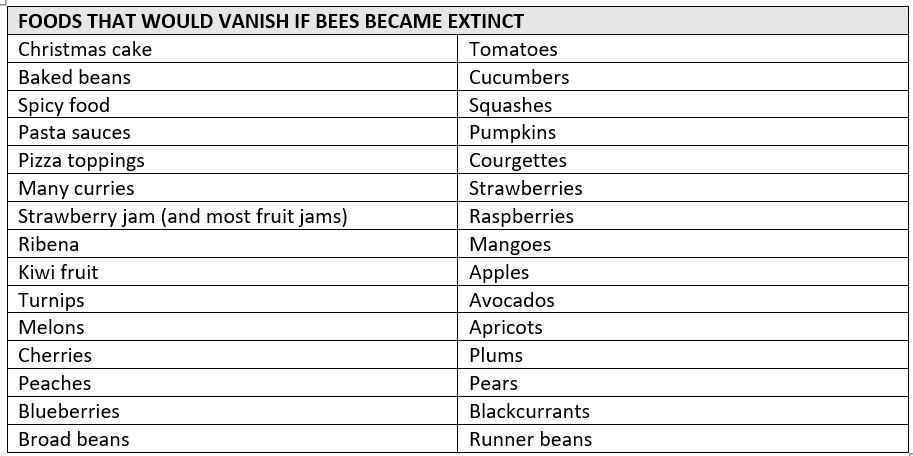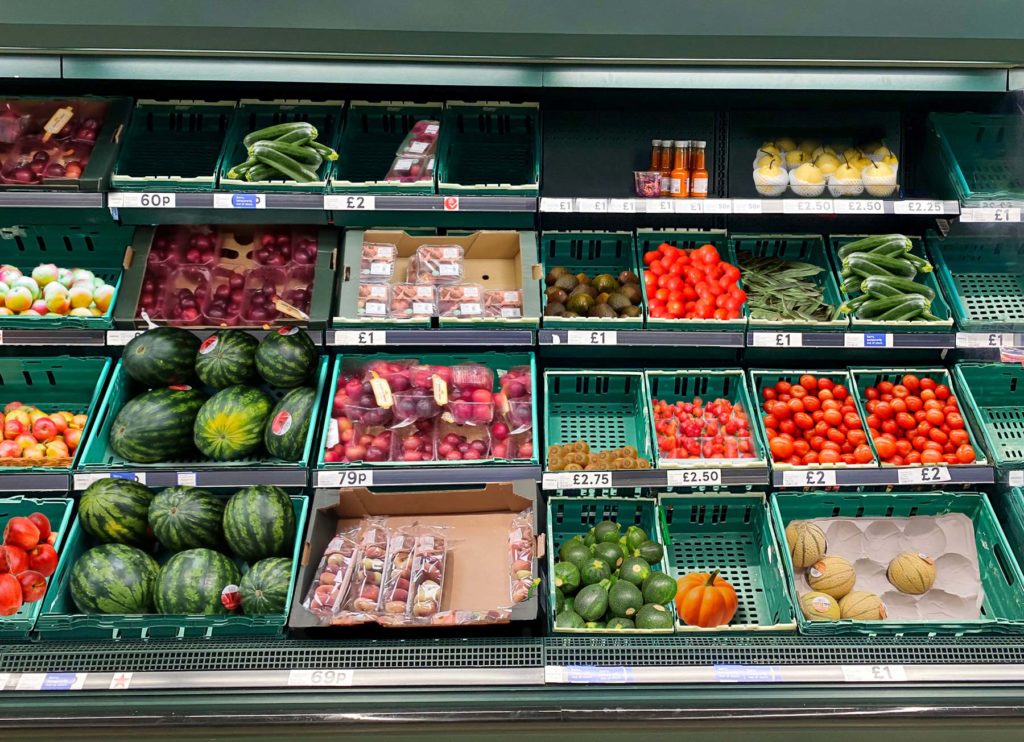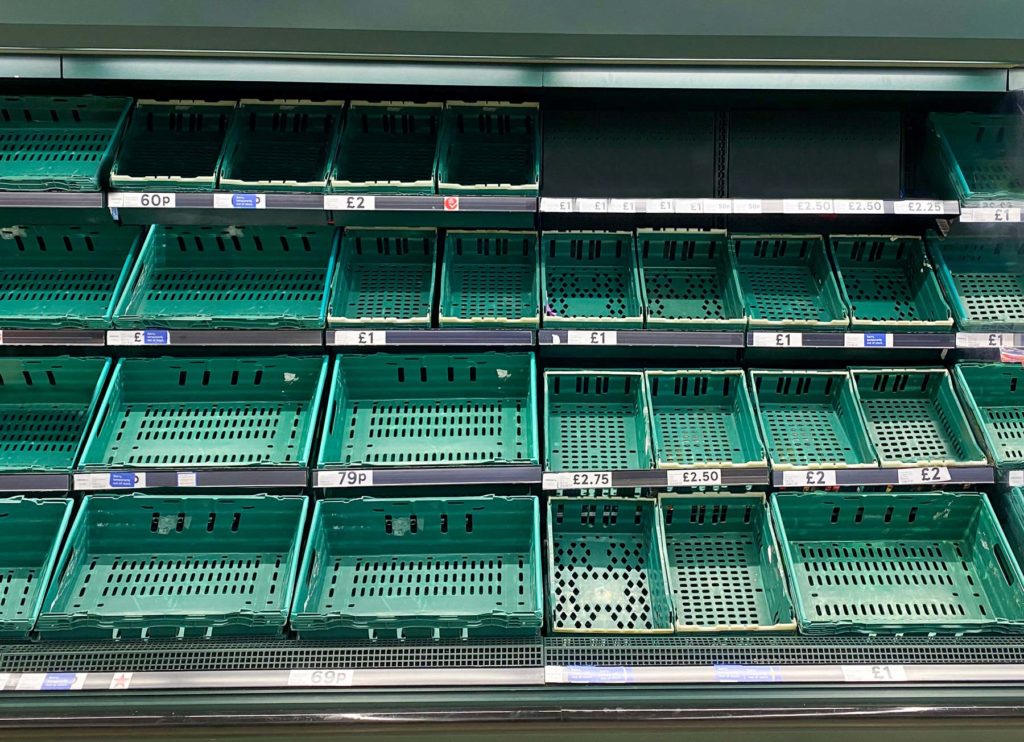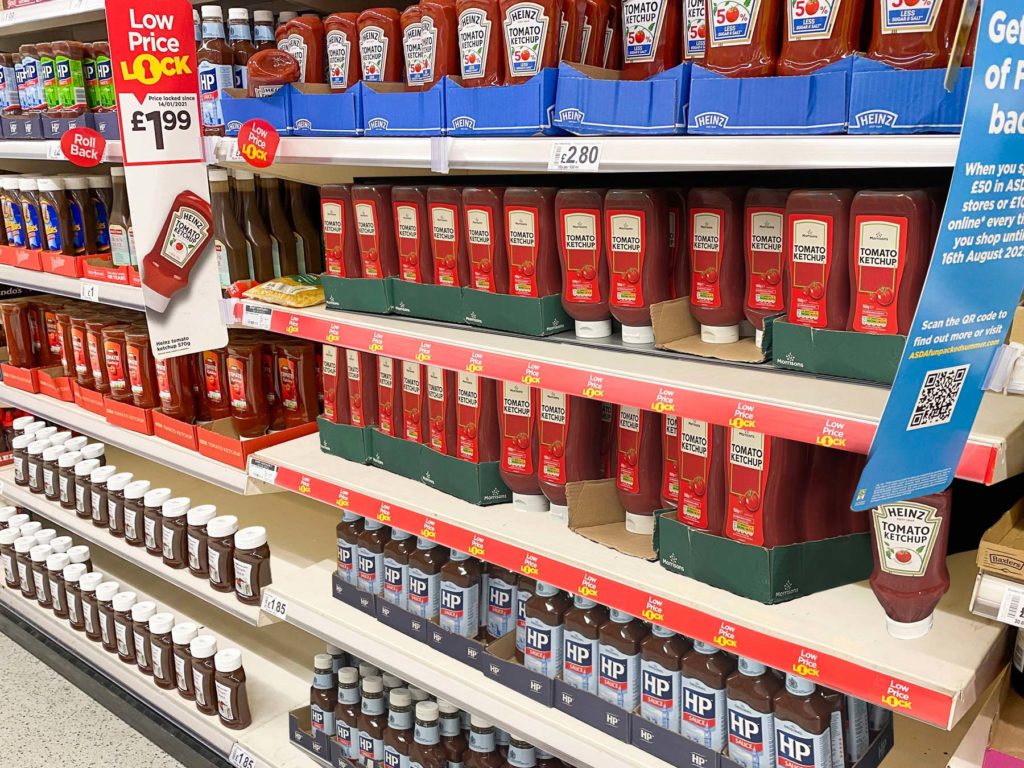Clipper Teas, the natural and organic tea brand owned by Ecotone UK, is working closely with a top conservationist to highlight the important role of bees and other pollinators to the food industry.
As part of the brand’s Organic September campaign, Clipper is working in partnership with bee expert Dave Goulson and has shared a number of thought-provoking images to demonstrate the impact on UK supermarkets if the number and species of bees and other pollinators continue to decline.
The pair also reveals the popular foods that would vanish from shop shelves if these pollinators became extinct including favourites like curry, tomato ketchup, baked beans and jam.

This threat has been accelerated by the use of harmful pesticides in conventional food production, which Dave Goulson says is reducing bee numbers and in turn damaging the eco-system. Alternatively, organic farming is highly regulated and actively avoids using chemical pesticides – instead relying more on preventative measures to control pests and disease.
Dave says:
Many pesticides are directly toxic to bees – not just insecticides, but also fungicides and herbicides. And worryingly honey stores in bee nests often contain cocktails of 10 or more pesticides. There is abundant evidence these pesticides kill bees or have ‘sublethal’ effects such as impaired learning, low resistance to disease, and reduced fertility.
To help educate consumers, Clipper is also working with a panel of wildlife and gardening influencers – including wildlife expert and BBC Springwatch presenter, Megan McCubin – to show the small steps they can take at home to help bees and insects. This includes buying organic food and drink, and growing bee-friendly plants.
Caroline Rose, Clipper Teas brand controller at Ecotone UK, says:
There is still a way to go to help consumers understand the planet positive benefits of choosing organic over conventional food and drink. With no harmful pesticides, bees and other pollinators can thrive, which maintains our food systems. We have seen first-hand how plants, insects and animals flourish on an organic tea estate. From butterflies and dragonflies to roaming wild bison, our tea estates are truly alive with people, animals and insects living in harmony.
Fiercely committed to organic sourcing, Clipper Teas is also working with the National Trust this Organic September. The brand is donating 10p per pack, for up to 500,000 packs of Clipper, to National Trust’s Making Meadows appeal, totalling a £50,000 donation. This will help fund the restoration and conservation of wildlife lost from our countryside by bringing back wildflower meadows and restore habitats for bees and other wildlife.
Clipper is also creating a children’s bee trail around the National Trust site, Ham House in Richmond, on 18 and 19 September. It aims to educate and inspire a new generation to protect bees. Visitors will also be able to pick up a Clipper Organic September sample box and complementary seed packet.
Alexander Killick, Head of Commercial Development, National Trust, says:
We’re delighted to be working with Clipper Teas and their support for the National Trust’s Making Meadows appeal will help the Trust’s work creating and restoring 1,000 hectares of meadow land. We also know that the more people connect with the nature the more they’ll want to protect it, which is why Clipper’s event at Ham House is such a great way to inspire everyone to take a moment to notice of wildlife.
A pioneer in organic and sustainable tea, Clipper launched the world’s first fully biodegradable, unbleached and non-GM tea bag. It is also one of the founding Fairtrade brands and the world’s largest Fairtrade tea brand.
Source: Clipper Teas





You must be logged in to post a comment Login